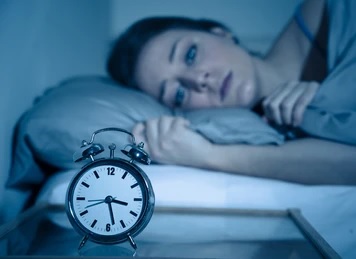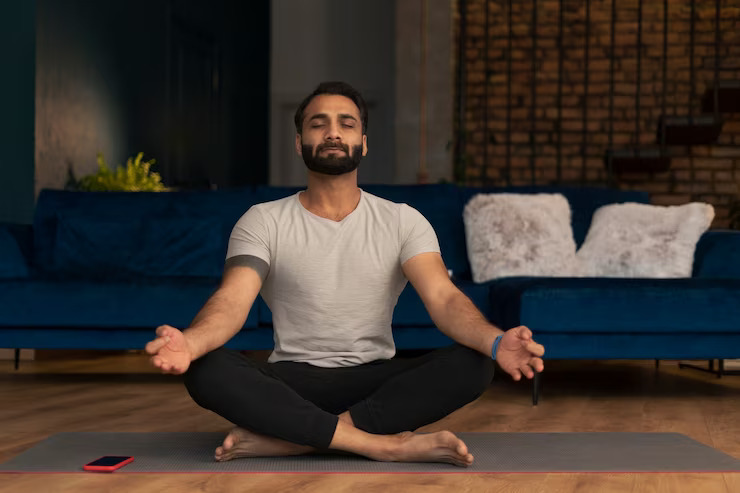Sleep disturbances, also known as sleep problems or sleep disorders, can significantly impact a person’s well-being and overall health. Treatment for sleep disturbances depends on the specific sleep disorder and individual factors. Here are some common ways to treat sleep disturbances:
1. Sleep Hygiene:
Sleep hygiene involves adopting healthy sleep habits to promote restful sleep. Some key sleep hygiene practices include:
a. Maintaining a Consistent Sleep Schedule:
Going to bed and waking up at the same time every day, even on weekends, helps regulate the body’s internal clock.
b. Creating a Comfortable Sleep Environment:
Ensure the sleep environment is conducive to sleep. A cool, dark, and quiet room with a comfortable mattress and pillows can improve sleep quality.
c. Limiting Screen Time:
Exposure to screens (phones, computers, TVs) before bedtime can disrupt sleep due to the blue light emitted by these devices. Limiting screen time at least an hour before bedtime can promote better sleep.
d. Avoiding Stimulants:
Limiting or avoiding caffeine, nicotine, and other stimulants close to bedtime can prevent sleep disturbances.
e. Avoiding Heavy Meals:
Eating heavy or spicy meals close to bedtime can cause discomfort and disrupt sleep. Opt for light snacks if needed.
2. Cognitive Behavioral Therapy for Insomnia (CBT-I):
CBT-I is a structured therapy approach designed to treat chronic insomnia. It focuses on changing negative thought patterns and behaviors related to sleep. CBT-I helps individuals develop healthy sleep habits and manage stress and anxiety that may contribute to sleep disturbances.
3. Relaxation Techniques:
Relaxation techniques are practises used to reduce stress and promote relaxation, leading to improved sleep quality. Techniques such as progressive muscle relaxation, deep breathing exercises, guided imagery, and meditation can help calm the mind and body, making it easier to fall asleep and stay asleep.
4. Sleep Restriction Therapy:
Sleep Restriction Therapy is a behavioral intervention used in Cognitive Behavioral Therapy for Insomnia (CBT-I). It involves limiting time spent in bed to match the actual amount of sleep obtained. By consolidating sleep and increasing sleep efficiency, it aims to improve sleep quality and reduce nighttime awakenings.
5. Medications:
In some cases, sleep medications may be prescribed for short-term relief of sleep disturbances. These medications should only be used under the guidance of a healthcare professional and for a limited duration to prevent dependency.
Modalert Australia is a medication commonly used to promote wakefulness and alertness in individuals with sleep disorders such as narcolepsy, obstructive sleep apnea, and shift work sleep disorders. It contains the active ingredient modafinil and is prescribed under medical supervision for managing excessive daytime sleepiness and improving cognitive function.
6. Addressing Underlying Medical Conditions:
Treating underlying medical conditions, such as sleep apnea, restless leg syndrome, or medical conditions that cause pain or discomfort, can significantly improve sleep quality.
7. Sleep Apnea Treatment:
For individuals with sleep apnea, continuous positive airway pressure (CPAP) therapy or other sleep apnea treatments can be effective in improving sleep quality and addressing related health issues.
Artvigil is not a standard treatment for sleep apnea. Sleep apnea is commonly managed with therapies like continuous positive airway pressure (CPAP) machines, lifestyle changes, or surgery in some cases. Artvigil 150mg, containing armodafinil, is primarily prescribed for conditions like narcolepsy, obstructive sleep apnea, and shift work sleep disorder to promote wakefulness and alertness during waking hours.
8. Light Therapy:
Light therapy involves exposure to bright light, usually in the morning, to help regulate the body’s internal clock and improve sleep-wake patterns, especially for individuals with circadian rhythm disorders.
9. Melatonin Supplements:
Melatonin is a hormone that helps regulate sleep-wake cycles. For individuals with circadian rhythm disorders or jet lag, melatonin supplements may be used under medical supervision to improve sleep.
10. Lifestyle Changes:
Lifestyle changes play a crucial role in promoting healthy sleep and overall well-being. Adopting a consistent sleep schedule, practising good sleep hygiene, and creating a comfortable sleep environment are essential steps to improving sleep quality. Regular exercise can also enhance sleep, but it’s best to avoid vigorous workouts close to bedtime. Limiting caffeine and stimulant intake, especially in the evening, can help prevent sleep disturbances. Managing stress through relaxation techniques, meditation, or yoga can contribute to better sleep. Emphasising a balanced diet and avoiding heavy meals before bedtime can further support healthy sleep patterns.
11. Stress Management:
Stress and anxiety can disrupt sleep. Engaging in stress-reduction techniques such as meditation, yoga, or counselling can improve sleep quality.
12. Avoiding Alcohol and Sedatives:
Avoiding alcohol and sedatives is essential for promoting healthy sleep. While these substances may initially induce sleep, they can disrupt the sleep cycle, leading to fragmented and poor-quality sleep later in the night. Alcohol can interfere with REM (rapid eye movement) sleep, affecting overall sleep architecture. Similarly, sedatives and certain medications can cause drowsiness and impair sleep quality. To improve sleep, it’s best to limit or avoid the consumption of alcohol and sedatives close to bedtime, allowing the body to naturally transition through the sleep stages for restorative rest.
13. Professional Sleep Evaluation:
A professional sleep evaluation is a comprehensive assessment conducted by sleep specialists to diagnose and treat sleep disorders. It involves gathering detailed information about an individual’s sleep patterns, medical history, lifestyle, and any symptoms of sleep disturbances. Diagnostic tools, such as sleep studies (polysomnography), may be used to monitor sleep cycles, breathing patterns, and brain activity during sleep. The evaluation helps identify the underlying cause of sleep disturbances and guides the development of a personalised treatment plan to improve sleep quality and overall well-being.
Conclusion:
Treating sleep disturbances involves a combination of lifestyle changes, behavioural interventions, and, in some cases, medical treatments. Sleep hygiene practises, cognitive behavioural therapy for insomnia (CBT-I), relaxation techniques, and addressing underlying medical conditions are essential components of sleep disturbance treatment. Medications may be used for short-term relief, but their long-term use should be carefully monitored. Individuals experiencing persistent sleep disturbances should seek guidance from healthcare professionals to develop a personalised treatment plan that addresses their specific needs and improves their sleep quality and overall well-being. Adopting healthy sleep habits and addressing sleep disturbances can lead to better sleep and contribute to overall physical and mental health.



